On Radio-Canada’s flagship French-language book program, Plus on est de fous, plus on lit! Donald Cuccioletta calls The Complete Muhammad Ali by Ishmael Reed an “excellent book” that must be read to understand the boxer and his times. If you understand French, you are invited to listen to this interview. It begins at the 17th minute.
The Riot that Never Was wins Richard-Arès Award
 James Jackson, author of The Riot that Never Was, published in English in 2009 and in French in 2014, received the prestigious Prix Richard-Arès for nonfiction awarded by L’Action nationale, Quebec’s oldest magazine. Each year L’Action nationale awards the prize to an author who published a nonfiction book in Quebec that sheds light on the major issues of Quebec national interest. The prize was created in memory of Father Richard Arès whose prolific output contributed to enrich thought and public debate in Quebec.
James Jackson, author of The Riot that Never Was, published in English in 2009 and in French in 2014, received the prestigious Prix Richard-Arès for nonfiction awarded by L’Action nationale, Quebec’s oldest magazine. Each year L’Action nationale awards the prize to an author who published a nonfiction book in Quebec that sheds light on the major issues of Quebec national interest. The prize was created in memory of Father Richard Arès whose prolific output contributed to enrich thought and public debate in Quebec.
In presenting the award to James Jackson, historian Robert Comeau insisted on the importance of questioning our accepted ideas on events that we think we know well. James Jackson did just that in The Riot that Never Was, which has the very explicit subtitle, The Military Shooting of Three Montrealers in 1832 and the Official Cover-up. Comeau noted that until Jackson went back and scrutinized the original sources, historians and lay people alike participated in the “cover-up,” simply because they blindly repeated the official story about a riot.
In short, three innocent French-speaking Canadien passers-by were killed by British troops who opened fire on rue Saint-Jacques, then known as St. James Street. Supporters of pro-Patriote Party candidate Daniel Tracey, an Irish-born doctor, were celebrating his victory in a by-election that ended on that fatal day of May 21, 1832. It was claimed that the people were rioting. Jim Jackson doubted the official story, based on the suspicion that, to his knowledge, never in history had supporters of a victorious candidate rioted. It was always the opposite, the losers who rioted.
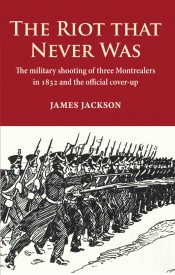 Jackson set to work and proved without a doubt in a book that reads like a ‘whodunit’ that there never was a riot and that the magistrates and officers responsible for the shooting should have been brought to justice. He also shows how important these events of 1832 were in the radicalizing of the Parti Patriote and its leader Louis-Joseph Papineau in the years preceding the rebellions of 1837 and 1838.
Jackson set to work and proved without a doubt in a book that reads like a ‘whodunit’ that there never was a riot and that the magistrates and officers responsible for the shooting should have been brought to justice. He also shows how important these events of 1832 were in the radicalizing of the Parti Patriote and its leader Louis-Joseph Papineau in the years preceding the rebellions of 1837 and 1838.
For more information, read the summary or purchase The Riot that Never Was.
The French adaptation is titled L’émeute inventée.
The Complete Muhammad Ali: “a must-read” PBS/Book View Now
Ishmael Reed’s The Complete Muhammad Ali continues to shake up all the received ideas about Muhammad Ali, the Nation of Islam, the Honorable Elijah Muhammad, Malcolm X, boxing as a whole, racism in boxing, and much much more.
 Ishmael Reed, a guest at the National Book Festival in Washington D.C., was interviewed on the PBS Book View Now live stream by Rich Fahle and Kwame Alexander. Book View Now insisted on Twitter that “The Complete Muhammad Ali from @BarakaBooks is a must-read!”
Ishmael Reed, a guest at the National Book Festival in Washington D.C., was interviewed on the PBS Book View Now live stream by Rich Fahle and Kwame Alexander. Book View Now insisted on Twitter that “The Complete Muhammad Ali from @BarakaBooks is a must-read!”
Watch the interview on Youtube (September 5, 2015)
The Gazette journeys to the heart of the first peoples collections
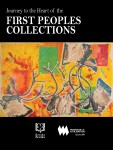 John Pohl of The Montreal Gazette recently journeyed to the Musée de la civilisation in Quebec City to meet with Marie-Paule Robitaille, editor of Journey to the Heart of the First Peoples Collections recently published by Baraka Books, and to visit the museum. He writes:
John Pohl of The Montreal Gazette recently journeyed to the Musée de la civilisation in Quebec City to meet with Marie-Paule Robitaille, editor of Journey to the Heart of the First Peoples Collections recently published by Baraka Books, and to visit the museum. He writes:
“Indeed, the book is a treasure trove of information, with 15 essays about the collection and hundreds of illustrations, all with explanations of what the object depicted was used for. It also contains footnotes to more references, and a long bibliography.”
Musée de la civilisation excavates the stories behind aboriginal artifacts
by John Pohl – The Montreal Gazette
The story of how Quebec City’s Musée de la civilisation built its collection of aboriginal artifacts reflects the history of the aboriginals themselves since their early contact with Europeans — their tools, clothing and weapons were first collected as trophies of subjugation without reference to how the objects were used.
But as Marie-Paule Robitaille writes in Journey to the Heart of the First Peoples Collections, the book she edited for the museum, what these early collectors preserved is now used by contemporary aboriginals to regain lost parts of their cultures.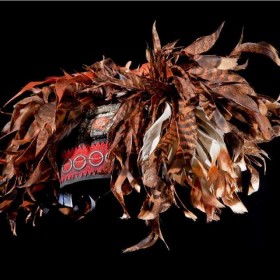
New storylines emerge, such as with Poundmaker, a Plains Cree chief known as a peacemaker who was imprisoned for treason, said Robitaille, curator of the collection until her recent retirement. “Most histories referred to him with the same few lines, but we found fuller accounts in the archives.”
Aboriginals participate in the identification process. In fact, everything in the collection is organized and exhibited in collaboration with aboriginals representing their nations, she said. Read on…
(Purchase Journey to the Heart of the First Peoples Collections)
The Nickel Range Trilogy goes to Costco
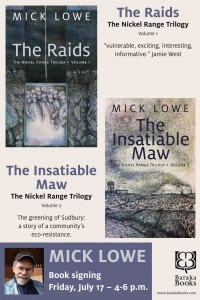 Mick Lowe’s first two books in The Nickel Range Trilogy, The Raids and The Insatiable Maw are now on sale at the Sudbury Costco. Mick will also be signing books at the store on Friday, July 17 from 4 to 6 p.m. People from all points in Northern Ontario who stock up at the Sudbury Costco can now also stock up on great stories by a guy who has spent his life writing them.
Mick Lowe’s first two books in The Nickel Range Trilogy, The Raids and The Insatiable Maw are now on sale at the Sudbury Costco. Mick will also be signing books at the store on Friday, July 17 from 4 to 6 p.m. People from all points in Northern Ontario who stock up at the Sudbury Costco can now also stock up on great stories by a guy who has spent his life writing them.
The Raids, published in May 2014, tells the story of hard rock miner Jake McCool and the epic inter-union battle fuelled by the Cold War. Based on real historical events, this fast-paced novel is also “a compelling story of political power, love and hatred all rolled into a gritty, hard-hitting novel of the Nickel Range,” as former miner and Local 6500 President Dave Patterson described it.
The Insatiable Maw, which is just out, follows Jake, the injured hard-rock miner, into the Copper Cliff smelter complex. The fight for decent and human working conditions there sparks intrigue at the smelter that echoes all the way to Toronto and results in the greening of Sudbury.
Mick Lowe is hard at work on the third volume of The Nickel Range Trilogy, which will take us into the bitterly fought year-long strike of 1978, while following the lives of his fictionalized characters introduced in The Raids and The Insatiable Maw.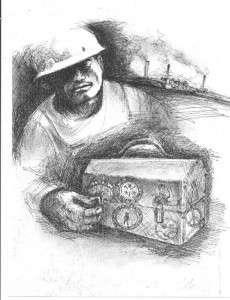
Both books are handsomely illustrated with original work by Sudbury artist Oryst Sawchuk.
So now’s the time to get volumes 1 and 2 of the Trilogy so that you’ll be ready for the promising finale.
Ishmael Reed in the Ring – Counterpunch
Ron Jacobs reviews The Complete Muhammad Ali. (order here.)
Ishmael Reed Gets in the Ring
Counterpunch, June 19-21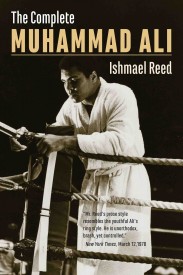
Ishmael Reed is one of the English language’s most important contemporary writers. His novels reveal a witticism and ironic sense found in very few other writers of the period. His essays and articles challenge commonly held dogmas in both mainstream thought and among those outside the popular mind. An intelligent reader of his works cannot help but be challenged by the points he raises, his use of the language, and the courage present. Liberals, socialists, right wingers and libertarians; men and women, LBG and T–everyone is open to Reed’s insightful and piercing pen as he points us all to an essential fact–our shared humanity and its manipulation by the powerful and their wannabes.
Reed’s mammoth biography of the Greatest of All Time, Muhammad Ali, will be published in July. Appropriately titled The Complete Muhammad Ali, this book is more than just a biography of the man the world calls Muhammad Ali. It is also a history of the sport and business of boxing, Elijah Muhammad and the Nation of Islam, the 1960s civil rights movement in the United States, and a myriad of other associated topics–even the history of the African continent. It also serves as a critique of sports in a capitalist system, the domination of the US sports media by white (often openly racist) men, and the Ali hagiography business. From the late jazz violinist Billy Bang to Hugh Masekela; from Kareem Abdul Jabbar to Howard Cosell, this text is greater than the massive sum of its parts.
Simply put, it is a fascinating document. I say this as a fan of Ishmael Reeds writing and as a historian very interested in discovering and publicizing the histories we are not told. The book is comprised of Reed’s detailed and entertaining narrative intermingled with numerous interviews from people in numerous walks of life.
Reed challenges the commonly held idea that Ali was the first racially proud boxer since Jack Johnson. He does so by citing incidents of racism Joe Louis and other fighters before Ali experienced and their refusal to bend to them. He also argues, rightfully so, that the racism those men lived with was rawer and more violent than that which has existed since the civil rights movement began in the 1950s, at least as far as Black celebrities were concerned.
In writing this book, Ishmael Reed has created the most complete biography of one of history’s most famous personalities. In addition, he has provided the reader (and the world) with a revelatory look at the world Muhammad Ali resided in. It was a world of money, racial animosity, religion, and politics. It was (and is) a world peopled with luminaries and egotists, humble souls and family. It is a tale not only of a life that reacted to the times, but a detailed look at the influence Muhammad Ali and the others discussed in the book had on those times.
Like almost any human being, Muhammad Ali was a complex person. The fact that he spent so much time on the world stage led some to think his contradictions were weaknesses or signs of something less than genuine. Ishmael Reed has done a detailed and well-rounded presentation of the man and his complexities. It was and is a life representative of the times. This quote from Harry Belafonte makes the point quite well: “He was the poster boy for what the struggle was all about.”
Not everyone who appears in this biography agrees with Belafonte. Some do not even consider Ali the greatest boxer of all time, pointing instead to Sugar Ray Robinson and even Joe Louis. I am not enough of a boxing fan to have any opinion, but suffice it to say, these comments will certainly raise old arguments amongst those who are fans. The more important aspect of Reed’s interviews and often confrontational challenge to the legend of Ali is to his status as a civil rights champion on par with Martin Luther King, Jr. Reed is not alone in this perspective. Indeed, numerous interviewees agree with Reed, while allowing for the fact that Ali’s domination of the world stage—in part because of his status as a sport champion—lent the civil rights struggle an international cachet it was unlikely to attain without the commanding presence of Muhammad Ali. Furthermore, argue many of those who appear in The Complete Muhammad Ali, it was Ali’s stand against the US military draft that clinched his public status as someone who was more than a boxer, more than an athlete. Personally speaking, I concur completely with this latter sentiment. When Ali refused the military draft, it validated my growing opposition to the US war in Vietnam and called the entire US imperial operation into question among some of my older and more knowledgeable peers. This phenomenon repeated itself millions of times in cities, gyms and schoolyards around the United States and the world.
One question Reed asks every interviewee is why they think Muhammad Ali is so well liked now by the establishment. Every single response to this query, whether from a member of the Nation Of Islam, a media pundit or a black radical, is essentially the same. Ali is so well liked now, they say, because he is “safe.” His illness has rendered him often incapable of speech and he often seems to be weaker than his closest confidantes claim he actually is. Some of the answers also mention Ali’s age, pointing out that white America has always found old Black men “harmless.” Critic Jill Nelson goes the furthest, remarking that white America always found Ali to be safe as long as he was in the ring. It was when he acted publicly outside the realm of boxing that he scared and angered the white establishment. White America likes their Black men in cages, whether they are made of elastic ropes or steel bars.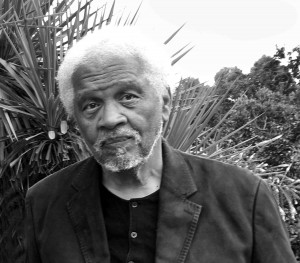
The Complete Muhammad Ali is twelve solid rounds of writing. Throughout the text, Ishmael Reed jabs and juts, fades and dances. He even plays a little rope-a-dope. In the end, his biography of Muhammad Ali stands above its competition. It is not always pretty and parts of it leave the legend of Ali somewhat bloodied. In doing so, it rings closer to the truth than the sanitized tale today’s public has accepted as real. This text is an in depth and studied look at a man, a sport, a nation and a history. In his contemplation of all of these, Ishmael Reed paints a canvas that is simultaneously darkened with shadows and brightened with hope; defined by history that is certain to be riven with a fair amount of controversy. Muhammad Ali became and remains much bigger than the man who bears that name. Ishmael Reed’s biography of Ali is similar in its breadth and scope.
Ron Jacobs is the author of Daydream Sunset: Sixties Counterculture in the Seventies published by CounterPunch Books. He lives in Vermont. He can be reached at: ronj1955@gmail.com.
Seeing Life from the Role of the Oppressed
Ted Schmidt talks about liberation theology and Claude Lacaille’s Rebel Priest in the Time of Tyrants
The Taylor Report: June 15th, 2015
Featured Guest: Ted Schmidt, teacher, author of several books, including Never Neutral: A Teaching Life (2012), journalist, political activist, liberation theology activist.
click here http://www.radio4all.net/responder.p…/…/81355/89778/101830/…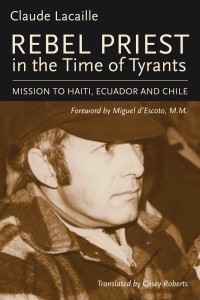
Ted Schmidt discusses Claude Lacaille’s recently released book, Rebel Priest in the Time of Tyrants, Mission to Haiti, Ecuador and Chile and asserts that Lacaille brings back into focus the importance of seeing life from the role of the oppressed people and that deserting Vatican II was a betrayal of a moral mission to serve the masses, especially the oppressed.
Schmidt praises Pope Francis, who declared El Salvadoran Archbishop Romero a martyr and who is turning back to the Vactican II mandates based on discussion, inclusion, justice for humanity.
What were the major flaws of Pope John Paul II and Pope Ratzinger? Listen to the show for Schmidt’s lucid analysis.
Miners’ Singular Purpose To Feed the Insatiable Maw
Phil Taylor interview’s Mick Lowe on The Insatiable Maw, Vol. 2 of The Nickel Range Trilogy.
In the interview, Mick Lowe explains the title, The Insatiable Maw: He borrowed it from the late lawyer, politician, man about town, Elmer Sopha, who referred to the miners’ singular purpose being to feed the insatiable maw of the copper cliffs smelter.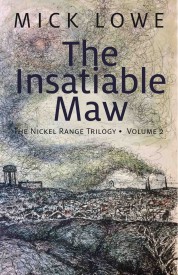
The Insatiable Maw is set in the Cooper Cliff smelter complex. The protagonist, Jake McCool, fights for health and safety in the mines.
The third volume of The Nickel Range Trilogy will be longer and will depict the titanic battle between labor and capital during the 1978-79 strike.
Lowe emphasizes we must tell the story of labor struggles so the struggles and the labor heroes are not lost in the past.
Click Here to listen to the interview. And buy it here.
RIP Monsieur Jacques Parizeau
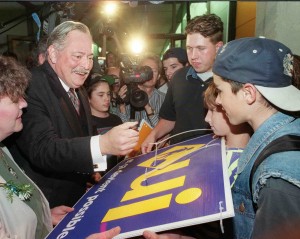 Jacques Parizeau has been a friend of Baraka Books since the press was founded in 2009. A year later, when we published his book, An Independent Quebec, The past, the present and the future, he declared: “I am very pleased to see this book published in English. It has always been my belief that the best way for Quebecers and English-speaking Canadians to reach an understanding that is satisfactory for all is through direct communication. Though we may not agree on the best course to take, we will at least understand and hopefully respect each other’s choices.”
Jacques Parizeau has been a friend of Baraka Books since the press was founded in 2009. A year later, when we published his book, An Independent Quebec, The past, the present and the future, he declared: “I am very pleased to see this book published in English. It has always been my belief that the best way for Quebecers and English-speaking Canadians to reach an understanding that is satisfactory for all is through direct communication. Though we may not agree on the best course to take, we will at least understand and hopefully respect each other’s choices.”
Mr. Parizeau asked me as translator and publisher to write a short Foreword to explain the origins of the book and the English adaptation. For the record, here is the Publisher’s and Translator’s Foreword.
It was a great honour to be invited by Mr. Jacques Parizeau in November 2008 to help him with his book project. He did not wish to write a memoir, settle scores with political adversaries, or rehash his speeches made since the 1995 referendum. He was writing a new book addressing the political and economic issues of the day. What an opportunity! Mr. Parizeau has been intimately involved in everything that has happened in Quebec since the 1960s. He has never wavered in his overarching commitment to public service and to the public interest, and has always been respected, even by opponents. As the book progressed, it became obvious that his thoughts, experience, and grasp of issues that face all peoples, nations, and countries in 2010 should be shared with English-speaking readers in Canada and elsewhere. That is when the idea of translating this book was first broached and Mr. Parizeau agreed enthusiastically. In parallel, Baraka Books had just been founded with a mission to publish “ideas, points of view, and creative works that might otherwise be overlooked because of cultural or linguistic barriers.” It is my belief that, with this book, readers will not only see Mr. Parizeau in an entirely different light, but also better understand the cause that he has defended for forty years.
May 2010
Monsieur Jacques Parizeau will be sorely missed because of his tremendous contribution to Quebec since the 1960s. At Baraka Books, we are very proud to have his last book in our collection.
Robin Philpot
Publisher, June 3, 2015
PW interviews Claude Lacaille
Priest’s Mission Embodies the Pope’s Focus on the Poor
(Publishers Weekly in its monthly Religion Bookline interviews Claude Lacaille author of Rebel Priest in the Time of Tyrants, Mission to Haiti, Ecuador and Chile)
In Rebel Priest in the Time of Tyrants: Mission to Haiti, Ecuador and Chile (Baraka Books, June), Claude Lacaille recounts his years as a missionary priest in the Caribbean and Latin America during a period when dictators like Papa Doc Duvalier and Augusto Pinochet ruthlessly exploited the powerless and impoverished. Lacaille and other priests believed the Catholic Church’s central concern should be for the poor, arguing that charity was not enough–the structural and political causes of poverty must be addressed. Their movement was called liberation theology. A front page story May 24 in the New York Times points to the timeliness of Lacaille’s memoir. He answered PW‘s questions from his home in Trois-Rivières in Canada.
PW: Some critics say that Pope Francis’s seeming embrace of liberation theology is merely an attempt to remake the image of the Church as it struggles with increasing cultural irrelevance. Do you believe Francis is sincere?
Claude Lacaille: In the late 1960s, when more than 400 priests joined the Third World Priest Movement in Argentina, the hierarchy condemned the movement, declaring it was not in line with the social teachings of the Church. The Argentinean pope never embraced liberation theology as a theory; like many clergymen at that time, he was concerned about the security of his fellow clergy, but also about the radicalism of priests who advocated the end of capitalism and favored socialism. Then, as archbishop of Buenos Aires, Pope Francis lived in a suburb and got closer to the poor during a period of crisis in Argentina’s economy. Like Bishop Romero in San Salvador, he was transformed and converted as he witnessed the oppression of the people.
Now Francis has taken prophetic actions like his visit to Lampedusa and his decision to recognize the State of Palestine. He invited liberation theologian Gustavo Gutierrez to the Vatican and beatified the martyred bishop of San Salvador, Oscar Romero. I believe in his sincerity and will to change the Church, but after John Paul and Benedict, who named conservative bishops to dismantle the Church of the poor during a 35-year period, shifting back to this priority is not going to be easy.
PW: What other changes are needed to transform the Church?
Claude Lacaille: The Curia must be reformed and decisions decentralized, giving more responsibility back to Bishop Conferences. This pope has simplified his contact with the people and does not play the pontifical imperator; he is simple and accessible. The Church should not make the Vatican its center, and reorganize on more efficient and simple premises. The riches accumulated during the Renaissance are a world heritage, but for the poor these riches are a scandal and treason to the gospel of Jesus. Bishops should be elected by the local churches, not by the Vatican State ambassadors, and their choices submitted to the pope for the sake of unity. The pope’s ministry is defined in Canon Law as an absolute theocratic monarchy, and this is far away from the ministry of unity granted to Peter.
PW: In your book you describe the complicity of Catholic clerics with brutal regimes in Haiti and in Latin America in the 1960s, ‘70s, and ‘80s. Has that corruption in the Church been completely rooted out? What remains to be done?
Claude Lacaille: Churches are human institutions, and human beings are capable of the best and the worst. In Haiti during the dictatorship of François Duvalier, some bishops would eat from the dictator’s hand and receive privileges for their loyalty and submission.
There are still some problems of abuses and corruption, but Pope Francis has denounced the sin of careerist clergy, of those who are on a quest for ecclesiastical power, reminding his fellow bishops, “Be shepherds who have the smell of the sheep.” He wants them to live close to the poor and take care of them. This is a mission, not a career.
PW: Do you foresee significant change under Francis in the Church’s stances on issues such as married priests, contraception, divorce, and homosexuality? How far can he move the needle?
Claude Lacaille: The Roman Catholic Church is severely shaken by the rejection of its teachings, held as divine, to which it clings even when common sense demonstrates they are not coherent with the gospel of Jesus. In the synod of bishops on the family, convened by Francis, whole sectors of the hierarchy refuse to discuss such issues. Following Ireland’s overwhelming vote in favor of same-sex marriage, Diarmuid Martin, archbishop of Dublin, said the Church must reconnect with young people to regain its cultural standing and moral authority: “We have to…not move into denial of the realities. I appreciate how gay and lesbian men and women feel on this day….it is a social revolution.”
Not everything is written in the Bible. Together, believers must discern what the Spirit of Jesus asks of us and take new paths. We should stop imposing our rules as if they were divine and let the people follow their own conscience. “If you are led by the Spirit, you are not under the law” (Galatians 5:18).
Purchase book here.

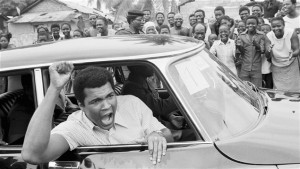
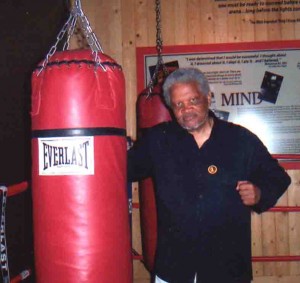
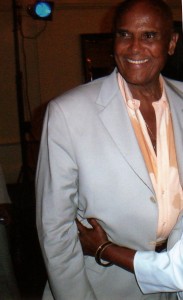
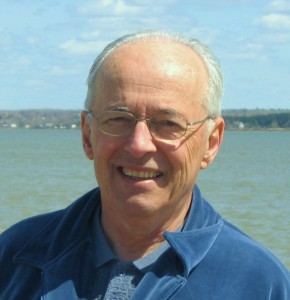


Facebook